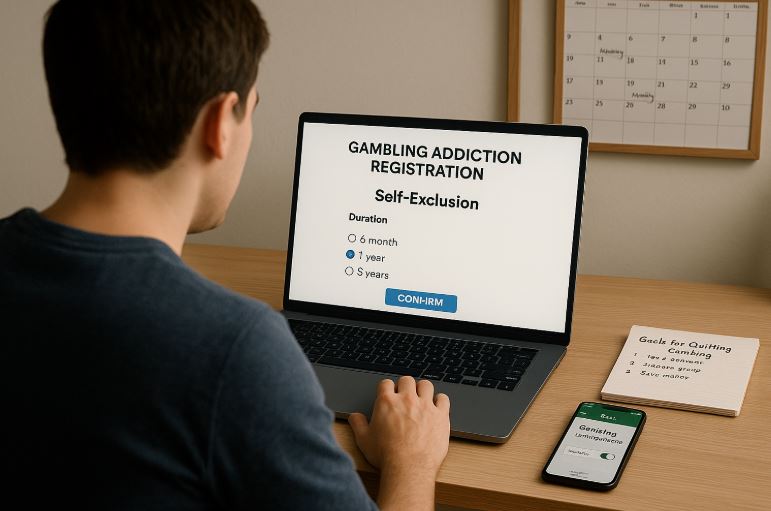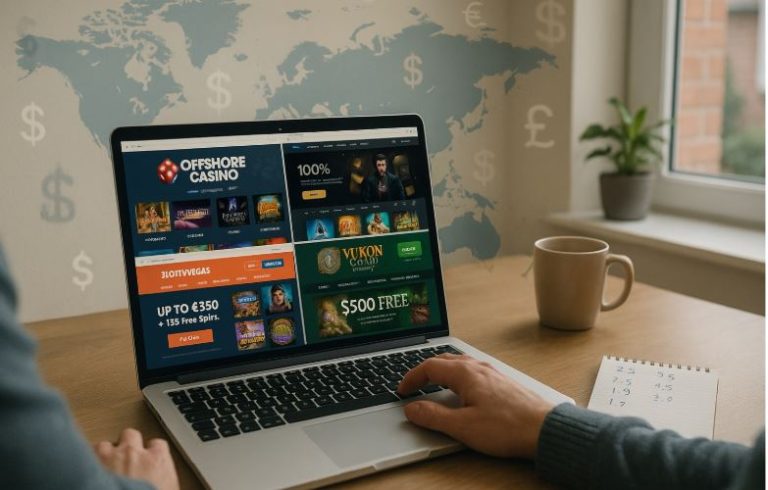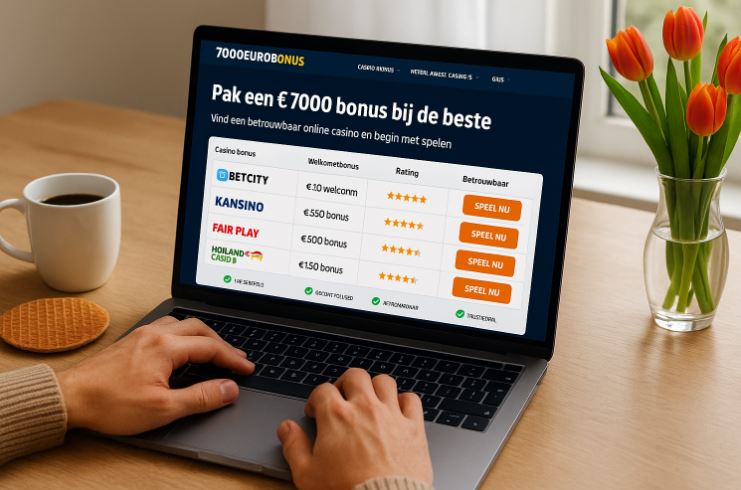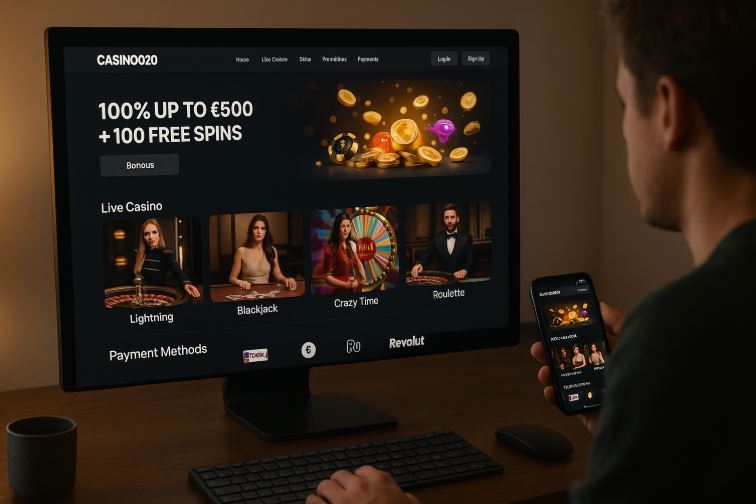How to Ban Yourself from Online Gambling? | Step-by-Step Guide
Online gambling has become a popular pastime for many people across the UK, offering convenience and accessibility. However, for some, it can turn into a serious problem, leading to financial difficulties, emotional distress, and strained relationships.
Understanding how to effectively ban oneself from online gambling can be a crucial step in regaining control.
In this comprehensive guide, we will explore everything from understanding gambling and its effects to step-by-step methods for self-exclusion, the tools available, and long-term strategies to maintain a gambling-free lifestyle.
What is Gambling?

Gambling is the act of wagering money or something of value on an event with an uncertain outcome, primarily with the goal of winning additional money or material goods.
In the online space, gambling includes activities such as online casinos, sports betting, poker, and virtual slot machines.
The rise of digital platforms has made gambling more accessible, allowing individuals to participate from their homes or mobile devices.
Types of Online Gambling
- Online Casinos: These platforms offer a wide range of games like blackjack, roulette, and slots.
- Sports Betting: Placing bets on various sports events, including football, horse racing, and tennis.
- Poker Rooms: Virtual poker games where players compete against others online.
- Bingo and Lotteries: Digital versions of traditional bingo halls and lottery draws.
How Online Gambling Works?
Online gambling sites operate through regulated software that randomises outcomes to ensure fairness. Users deposit money into their accounts, place bets, and either win or lose based on the game’s outcome.
Although heavily regulated in the UK, the ease of access has raised concerns about problem gambling and addiction.
How Does Online Gambling Affect Individuals?
While gambling can be a recreational activity, it can also lead to addiction for some individuals. Online platforms are particularly concerning because of their 24/7 accessibility and the use of mobile apps that make betting just a click away.
Psychological and Emotional Impact
- Gambling addiction is often linked to anxiety, depression, and stress.
- Losses can trigger emotional distress, leading to further gambling as a means of recovery, known as “chasing losses.”
- Feelings of guilt and shame are common among those struggling to quit.
Financial Consequences
- Uncontrolled gambling can lead to significant financial losses.
- Many gamblers resort to borrowing money, which can accumulate into unmanageable debt.
- Missed payments and bad credit can follow, impacting one’s financial stability.
Social Impacts
- Relationships with family and friends may suffer due to secrecy and financial strain.
- Work performance can decline due to distraction and anxiety related to gambling losses.
Understanding these impacts is the first step towards recognising the need for self-exclusion and taking control of one’s habits.
What Are the Signs of Gambling Addiction?
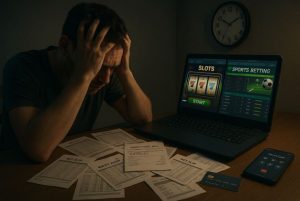
Gambling addiction, also known as compulsive gambling or gambling disorder, is characterised by the inability to control gambling habits despite negative consequences.
Identifying these signs early can make a significant difference in seeking help and implementing measures for self-control.
Key Warning Signs
- Inability to Stop Gambling: Continuously gambling despite repeated attempts to quit.
- Lying About Gambling Activity: Concealing the extent of gambling from friends and family.
- Chasing Losses: Increasing bets in an attempt to recover previous losses.
- Neglecting Responsibilities: Ignoring work, family, or financial obligations due to gambling.
- Borrowing Money to Gamble: Taking out loans or borrowing from friends to fund gambling activities.
Physical and Emotional Symptoms
- Restlessness or irritability when trying to cut down on gambling.
- Anxiety and depression are linked to gambling outcomes.
- Loss of sleep due to stress about gambling.
When to Seek Help?
If gambling is affecting daily life, financial stability, or personal relationships, it may be time to seek support and consider self-exclusion as a practical step.
Why is Self-Exclusion Important for Problem Gamblers?
Self-exclusion is a powerful tool designed to help individuals regain control over their gambling habits. It is a voluntary process that allows individuals to ban themselves from accessing online gambling platforms for a set period.
Benefits of Self-Exclusion
- Prevents access to gambling websites and apps.
- Encourages the development of healthier habits.
- Provides time for self-reflection and recovery.
- Reduces triggers and opportunities for impulsive gambling.
Available Self-Exclusion Options
- GAMSTOP: A free, national self-exclusion scheme in the UK that blocks access to all licensed gambling websites.
- SENSE (Self-Enrolment National Self-Exclusion): Specifically for land-based casinos in the UK.
- Multi-Operator Self-Exclusion Scheme (MOSES): Allows users to exclude themselves from multiple betting shops.
Who Should Consider Self-Exclusion?
Anyone who recognises that gambling is having a negative impact on their life should consider self-exclusion. It is especially important for those who have found it difficult to stop gambling on their own.
How to Ban Yourself from Online Gambling? – Step-by-Step

Understanding how to effectively ban oneself from online gambling requires following a structured process. Here is a step-by-step guide to help achieve this.
1. Identify the Problem
The first step is recognising the extent of gambling behaviour and its impact. If gambling is affecting finances, relationships, or mental health, it’s time to act.
2. Choose a Self-Exclusion Service
In the UK, several services are available:
- GAMSTOP: Registering with GAMSTOP blocks access to all online gambling websites licensed in the UK.
- SENSE: For those who frequent physical casinos, SENSE provides an exclusion service across all UK-based casinos.
- MOSES: Ideal for individuals wanting to avoid high-street betting shops.
3. Install Gambling Block Software
Consider using software like:
- BetBlocker: Free software that blocks gambling sites across all devices.
- Gamban: A subscription-based service that prevents access to online gambling.
- Net Nanny or Qustodio: Effective for monitoring and restricting access to gambling sites.
4. Inform Banks and Financial Institutions
Banks like Monzo, Barclays, and Starling offer gambling blocks on transactions. Contact your bank to activate these features.
5. Seek Support and Counselling
Organisations such as GambleAware and Gamblers Anonymous provide confidential counselling and support.
What Gambling Blocking Tools Are Available in the UK?
To successfully ban oneself from online gambling, using digital tools that restrict access to gambling platforms is highly effective.
Popular Gambling Blocking Tools
- Gamban: Blocks thousands of gambling websites and apps.
- BetBlocker: Free-to-use tool that provides extensive site blocking.
- GamBlock: Designed for long-term prevention with customisable block options.
Banking Blocks
Many UK banks now allow customers to activate gambling transaction blocks directly from their mobile apps. Notable banks offering this service include:
- Monzo
- Starling Bank
- Lloyds Bank
How Does the Self-Exclusion Process Work?

Self-exclusion is a structured process designed to help individuals voluntarily ban themselves from accessing gambling platforms. In the UK, this process is well-regulated, ensuring that participants cannot easily reverse their decision during the exclusion period.
1. Register with a Self-Exclusion Scheme
The first step is to choose the right self-exclusion scheme based on your gambling habits:
- GAMSTOP: This is the most popular self-exclusion service in the UK for online gambling. Once registered, users are blocked from accessing all online gambling sites licensed in the UK.
- SENSE (Self-Enrolment National Self-Exclusion): Ideal for land-based casinos, allowing individuals to ban themselves from all participating venues.
- MOSES (Multi-Operator Self-Exclusion Scheme): Designed for high-street betting shops, enabling self-exclusion from multiple locations.
2. Provide Personal Information
During the registration, you will need to provide basic personal details such as:
- Full name
- Date of birth
- Email address
- Home address
This information ensures that the exclusion is accurately applied across all platforms.
3. Choose the Duration of Exclusion
Most self-exclusion schemes allow you to select the length of time you wish to be excluded. Common options include:
- 6 months
- 1 year
- 5 years
Once you choose a duration, it cannot be reversed until the period is complete.
4. Confirm Registration and Receive Verification
Upon successful registration, you will receive a confirmation email. In the case of GAMSTOP, this might take up to 24 hours to become active across all platforms.
5. Enforce Personal Restrictions
To further strengthen self-exclusion, consider implementing the following:
- Parental Controls: Use software like Net Nanny or Qustodio to block gambling sites.
- Browser Extensions: Tools such as StayFocusd can prevent access to gambling websites.
- Financial Blocks: Ask your bank to activate gambling transaction restrictions.
What Support Services Are Available for Gambling Addiction?
Support services are crucial for individuals attempting to quit online gambling. In the UK, there are numerous organisations dedicated to providing help, counselling, and practical advice for overcoming gambling addiction.
1. GambleAware
GambleAware is a leading charity offering free and confidential support. It provides resources for self-help, financial advice, and counselling through services like the National Gambling Helpline.
2. Gamblers Anonymous (GA)
GA is a community-based support group where individuals share experiences and provide mutual support. They follow a 12-step recovery program aimed at long-term abstinence.
3. GamCare
GamCare provides online chat support, a helpline, and in-person counselling for those struggling with gambling. It also offers GameChange, an online treatment program for problem gamblers.
4. NHS Gambling Addiction Services
The NHS offers specialised clinics for gambling addiction, providing psychological therapies and medical support where needed.
5. Financial Counselling Services
Many people facing gambling addiction also struggle with debt. Organisations like StepChange and National Debtline provide free advice on managing financial problems.
How Support Services Help?
- Offer confidential counselling and advice.
- Provide practical tools for money management.
- Assist with emotional and mental health recovery.
- Create action plans for long-term gambling prevention.
How to Maintain Self-Exclusion and Avoid Triggers?

Successfully banning oneself from online gambling is an important step, but maintaining that ban and avoiding triggers is equally crucial. Understanding the key strategies for staying away from gambling temptations can solidify long-term recovery.
1. Recognise Your Triggers
Triggers are emotional, situational, or environmental cues that may prompt the urge to gamble. Common triggers include:
- Financial stress
- Boredom or loneliness
- Social pressure
- Easy access to gambling platforms
2. Replace Gambling with Healthier Habits
Finding alternative activities can help break the cycle of gambling. Consider:
- Exercise: Engaging in sports or regular workouts.
- Hobbies: Learning new skills, cooking, and artistic activities.
- Volunteering: Helping others can shift the focus from gambling.
- Reading or Learning: Discovering new books or online courses.
3. Set Financial Barriers
Removing the ease of access to money reduces the chance of impulse gambling:
- Limit daily withdrawal amounts from your bank account.
- Give control of your finances to a trusted family member.
- Use banking apps to block gambling transactions.
4. Build a Support Network
Surround yourself with supportive friends and family who understand your goals. Regular check-ins can provide accountability.
5. Avoid High-Risk Situations
If attending events where gambling is present is triggering, consider avoiding them or attending with a supportive companion who can help keep you accountable.
What Are the Long-term Benefits of Banning Yourself from Online Gambling?
Self-exclusion and responsible gambling measures not only prevent immediate losses but also pave the way for long-term improvements in quality of life.
1. Financial Stability
- Reduced losses allow for improved budgeting and savings.
- Avoidance of high-interest loans and debt repayments.
- Opportunities to invest in meaningful pursuits like education or home ownership.
2. Improved Mental Health
- Lower levels of anxiety and stress related to financial instability.
- A sense of control and achievement in managing impulses.
- Better sleep and overall health due to reduced stress.
3. Strengthened Relationships
- Rebuilding trust with family and friends.
- More time spent with loved ones instead of isolated gambling sessions.
- Improved communication and honesty.
4. Career and Personal Development
- Enhanced focus and productivity at work.
- Opportunities to engage in professional development.
- Time and energy are directed towards personal growth.
Conclusion
Banning oneself from online gambling is a critical step towards overcoming addiction and regaining control over one’s life.
Through self-exclusion programs like GAMSTOP, gambling blocking tools, and support from organisations like GambleAware and GamCare, individuals can effectively remove the temptation to gamble.
Understanding triggers, setting financial boundaries, and building strong support networks are essential for long-term recovery.
The journey may be challenging, but the long-term benefits are well worth the effort, leading to improved financial stability, mental health, and personal relationships.
Frequently Asked Questions
Can I remove myself from GAMSTOP before the exclusion period ends?
No, once registered with GAMSTOP, you cannot remove yourself until the selected exclusion period is complete.
Is self-exclusion legally binding?
Yes, it is legally binding in the sense that gambling operators must prevent access. However, it is self-imposed, so there is no legal penalty for trying to circumvent it.
Are gambling blocks available on mobile banking apps?
Yes, many UK banks such as Monzo, Barclays, and Starling offer gambling transaction blocks directly through their mobile apps.
What happens if I try to gamble while under self-exclusion?
If you attempt to access a gambling site while self-excluded, your access will be denied, and any accounts you try to create will be blocked.
Can I self-exclude from international gambling sites?
Self-exclusion schemes like GAMSTOP only cover UK-licensed sites. For international sites, you may need to use software like Gamban.
Is counselling required for self-exclusion?
Counselling is not required, but it is highly recommended to support recovery and prevent relapse.
Can I exclude myself from only certain gambling sites?
Yes, but it is more effective to use comprehensive services like GAMSTOP that block all UK-licensed platforms.
Disclaimer:
UK Casino Blog does not operate or promote any form of gambling. All content is for news, analysis, and educational purposes only. Please gamble responsibly and seek help if you are affected by gambling-related issues.

